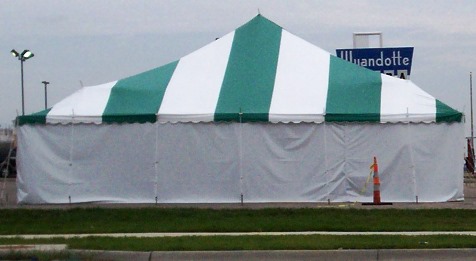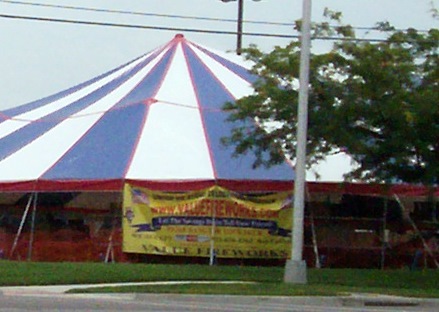Window on the West
by Mary Rupert
A Kansas City, Kan., organization has seen a community need for the past few years and has done something about it.
Civitan Club Dotte is starting a family life development center that will include a mobile food pantry, a thrift location, a career closet and a center that will offer practical information about cooking, gardening, careers and life enrichment.
The first day for the mobile food pantry is today, July 7, beginning at 2 p.m. at the Crossroads Family Church, 8822 Parallel Parkway, Kansas City, Kan. The mobile food pantry will be open until all the food is gone for the day, according to organizers. The center will be working in conjunction with Harvesters to distribute food in a drive-in format. There is no qualifying for the program, but those participating will be asked to sign in. The mobile food pantry started on a Monday, but from now on, the mobile food pantry will be open the second and third Saturdays of the month.
Janice Witt, president of the local Civitan Club Dotte chapter, said she has been contacted by many persons in need who have asked for help from the organization during the past few years. Civitan is an international civic service organization, and the Kansas City, Kan., Civitan chapter was founded by Witt and other volunteers.
The Crossroads Family Church, formerly Immanuel Baptist Church, has been an instrumental partner in the effort, as it has provided the needed space in two classrooms, Witt said.
Inside the church will be a regular food pantry. A free thrift also will be located at the church, where people can receive three outfits per family member once a quarter, she said. There will be items provided in the future such as school supplies and backpacks, she said.
Witt said the Civitan Family Life Development Center will include space at the church classrooms where workshops can be offered in life skills, along with education in career skills such as training in being a nurse’s assistant. A Kids Café sponsored by Harvesters will begin in August, she said, where children will learn how to cook, and each one will take home a bag of groceries at the end of the week.
Besides food provided by Harvesters, many volunteers including the Civitan Orchids chapter have collected canned food for a food pantry at the location, Witt said.
During the past few weeks, Civitan volunteers have been sorting through clothes, especially career clothes, to get the Career Closet ready. Witt noted that a store in Liberty, Mo., has donated many new name-brand career outfits to the effort.
Many businesses and organizations have made donations to this project, she said, including Ussery Body Shop, Jerry’s Sports Club, Laborers 1290, the UPS Store, House of Diamonds, Vision Signs, Twisters, Sunset Bar and Grill, DeGoler’s Pharmacy, Welborn Boarding and Grooming, and several others.
The Civitan Family Life Development Center is dedicated to Mother Reola Grant, Witt’s mother. Grant spent a lifetime helping the needy, often in a more informal way, including inviting the needy to her home to eat.
Witt saw many needs in the community that were not being met, and believes that needs have increased here during the past several years. “We knew hunger was out there,” she said. She cited people who are working minimum-wage jobs at fast-food restaurants, for example, as being among those who may need help with their bills and groceries.
“I’m doing this in honor of my mom,” Witt said. Her mom always told her that “when God calls you, He prepares you,” she said, and where a roadblock shows up, a detour appears, “and that’s the way it’s been.”
To reach Mary Rupert, editor, email [email protected].




